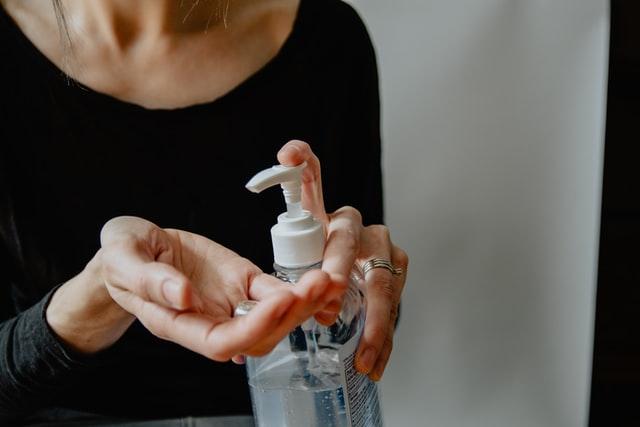Nobody wants to get sick, or to suffer from an infection.
But the question bears asking:
How do you keep yourself safe in a world full of viruses, microbes, and bacteria?
Well, as it turns out, you can be pretty assured of staving off illness and infection by turning a few specific safety practices into everyday habits.
And in this post, you’re going to learn about 6 common-sense habits that will definitely help you to decrease your risk of getting an infection or illness.
Let’s jump in with one habit that you’ve probably already utilized… washing your hands.
1. Wash Your Hands
Washing your hands helps to keep germs, microbes, and other foreign invaders off of your hands—and subsequently, off of your food and out of your body.
There are germs everywhere. We touch germ-covered items on a daily basis.
And if we never wash our hands, those germs are just going to get free real estate until they decide to jump-off onto your food, into your mouth, etc.
Hand washing is one of the number-one ways to prevent infection and illness.
2. Get Vaccinated
Whether we’re talking about the usual vaccines we all get at various stages of our lifetimes, or the Covid vaccine, getting vaccinated is a pillar of health and wellness.
It helps to prepare your body to defend itself against foreign germ invaders. And so, it’s an extremely useful tool for avoiding infections and illness.
3. Cook Safely
Food can easily transfer germs from a surface (or your hands) to your mouth and into your body.
Therefore, making sure to utilize safe food preparation practices is key.
Make sure that you refrigerate foods that need to be kept cold, use separate cutting boards for meat and vegetables, and cook all meats thoroughly.
4. Keep Sex Safe
Sexually transmitted diseases can definitely set you back in terms of health and wellness. But thankfully, they’re some of the easiest infections to prevent.
Making sure to get regular STI testing, and to always use condoms, will help you to protect yourself and prevent health issues.
5. Don’t Share Personal Bathroom Items
Sharing things like toothbrushes, razors, nail clippers, and towels can spread germs and microbes.
For best results, these things should be kept personal.
Only use your own toothbrush, don’t shave with someone else’s razor, etc.
6. Cover Your Mouth When Coughing Or Sneezing
When you cough or sneeze, there’s a good chance that you’re going to spread germs to everyone in the near vicinity.
And so, for this reason, it’s always a good idea to make sure to cover your mouth and nose when you do so. This could be done by using the crook of your arm to cover your face, or you could use a handkerchief or a napkin.
You could also use your shirt sleeve.
These are all better options to use than your hand, though, because if you use your hand to cover your mouth/nose when you sneeze or cough, you’ll likely just spread those germs to others anyway by virtue of touching door handles, computer keyboards, etc.












